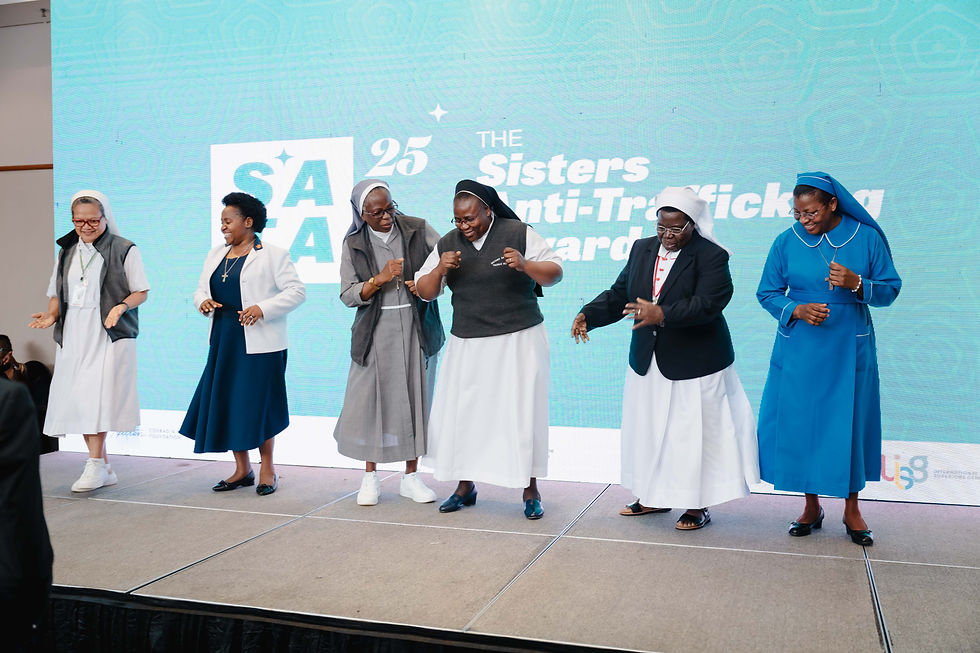Arise India Network: AMRAT Capacity Building
- Arise

- Jan 13, 2023
- 2 min read
Updated: Jan 16, 2023
Arise is engaged in capacity building work throughout the AMRAT (Asian Movement of Women Religious Against Human Trafficking) network. The network includes members from across India, chiefly made up of Catholic sisters engaged in community protection against exploitation.
Arise sponsored multi-day capacity building conferences in Kolkata, Chennai, Delhi, and Guwahati, where around 100 network members gathered to engage in training and discussion on the planning, execution, and measurement of anti-trafficking projects. There are further conferences planned across the network in the first months of 2023.

Above: AMRAT network members assembled in Delhi, November 2022 (Photo: Sr Asha Paul)
Each of the conferences was led by the specialist, Dr Lukose, who is a social work expert. To begin, the assembled groups discussed the trafficking threats to their communities, including forced labour, forced marriage, child labour, and debt bondage amongst other forms of exploitation. Such discussions are valuable, even for more experienced anti-slavery practitioners, to understand the dynamics of different threats across varied circumstances.
The sessions then turned their attention towards the root causes of the aforementioned exploitation. Across urban and rural contexts, the risk of joblessness and general economic insecurity were discussed. The groups also identified a lack of engagement with state services as a common issue in vulnerable regions.

Above: AMRAT network members assembled in Guwahati, September 2022 (Photo: Sr Arati Rabha)
The main focus across the sessions was project management. The sessions included training on needs and capacity assessment and stakeholder analysis. They also included advice about budgeting, monitoring interventions and impact where possible, and making sure to learn and continually adapt programmes on the basis of success. This adaptation is often missing across the development sector, but local groups committed to long-term action have an ability to tailor and develop projects to meet specific regional needs.
Examples of intervention monitoring could include a wide spectrum of metrics. In the Guwahati conference, for instance, there were numerous programme targets shared, including:
50% reduction in the rate of school dropouts across a 15-village operation zone.
60% of young parents to see income increases across operation zone.
Every village to host speakers discussing a.) the importance of education, b.) trafficking awareness, and c.) the availability of government schemes to encourage skills development and employment.
Frontline groups are often overlooked by the development sector because they operate in less formalised or standardised modes. They also act in far more ‘intimate’ environments, with a greater ability to address specific needs. Simple monitoring and evaluation, on targets like those discussed in Guwahati, does not alter the character of the work needed on the frontline, but allows such work to be reported, recognised, and ultimately expanded.
Arise was founded on the basis that this ability of frontline actors like the AMRAT network is overlooked and under-resourced. In order to gain funding from wider sources, and showcase the effectiveness of local action, it is important for such groups to be given the skills to plan and monitor their operations, whilst avoiding the pitfalls of more standardised development offerings. The valuable ability to develop unique and fitting programmes must be complemented with, rather than replaced by, administrative skills allowing greater recognition and access to funding from global sources.

Above: The AMRAT Network with Arise COO, Jess Templeman, in 2022 (Photo: Tove van Lennep)








Comments